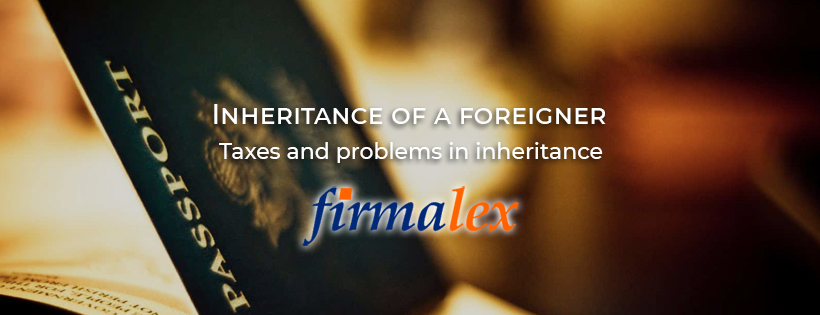The inheritance of a foreigner who has assets in Spanish territory has some complexities that are not found in the inheritance of Spanish nationals. For this reason, the best thing to do in these cases is to take measures to ensure that the inheritance in Spain is distributed quickly and easily.
What happens with the inheritance of a non-resident?
In Spain there is an inheritance tax, or impuesto de sucesiones, which is levied when a person dies, generating a tax liability for his or her heirs. In the case of inheritances from non-residents, there are several possible scenarios:
If the deceased is a non-resident in Spain, but is a resident of the European Union (EU) or the European Economic Area (EEA), and has assets in Spain
If the heir does not reside in Spain, he/she pays tax in Spain on the assets located in Spain. If he or she is a resident, he or she pays tax in Spain on the assets that the deceased had worldwide.
If the deceased had no assets in Spain, the non-resident heir can forget about issues such as wealth tax and inheritance tax, because he or she will not pay anything. If he/she resides here, he/she pays in Spain for the assets that the deceased had worldwide.
If the deceased non-resident is from anywhere else in the world other than the EU or EEA and had assets in Spain
The non-resident heir pays tax on assets located in Spain. If he/she lives in Spain, he/she pays tax here on the assets the deceased had anywhere in the world.
If he or she had assets, but only outside Spain, the non-resident heir pays nothing here, and the resident pays tax in Spain on the value of the assets located anywhere in the world.
The complexity of inheritance for non-residents
When it comes to settling the tax liability, when we talk about taxes on foreigners, we must take into account the place of residence of the deceased, the location of his or her assets, and the situation of residence or non-residence in Spain of the heirs. This makes it a particularly complex issue.
Often, interested parties try to avoid these problems for their family by means of a living donation. Although completely legal, this also means that non-residents are taxed on the donation. In addition, if there are later problems or disagreements about the distribution, a process of recovery of inheritance assets will have to be initiated in order to take them into account in the estate.
Reclaiming inheritance assets not only means that the distribution takes longer, but also that new taxes may have to be paid.
As you have seen, inheritance from abroad is a very complex matter, and the best way to avoid problems for the heirs is for the non-resident to make a will determining how he or she wants to distribute his or her assets. For a non-resident, it is advisable to testate in his or her place of residence and include in the will the assets he or she has in Spain. In this regard, it is interesting to take into account the European Inheritance Regulation (650/2012 of 4 July 2012), which applies to inheritances with some international element, and which helps to clarify the different situations that may arise in these cases.
Solve your doubts
✅ Our staff speaks perfectly Spanish, Valencian, English and German with what will be able to communicate with us in your own language and thus clearly resolve your queries.
📍 Denia – Plaza del Convento, 6 – Mezzanine floor door B
📍 Valencia – Calle Creu Roja, 1 – Block 6, Floor 1, door 10 (* only by appointment)
✉📞 Contact: info@firmalex.com – Tel. +34 966 421 416 – Whatsapp +34 622 497 615



